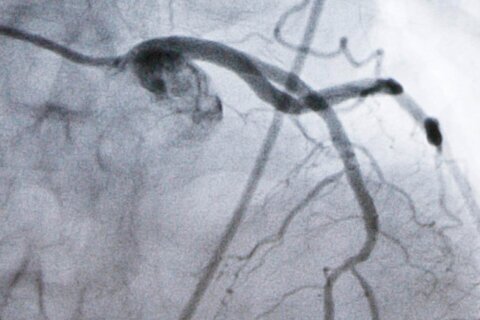Medications help treat symptoms and conditions, but they can have downsides too.
All medications carry the risk of side effects, and one of the more common ones is fatigue.
Some meds are intended to relax or sedate you. Others aren’t but may have that effect anyway.
Providers typically know which medications may cause fatigue. “Don’t be afraid to ask your pharmacist or family physician if that is an expected side effect when starting a new medication,” says Dr. Margot Savoy, a practicing family physician in Philadelphia and a member of the American Academy of Family Physicians Board of Directors.
Be an informed patient.
It’s important to ask questions about what side effects your medicine might cause before starting a new prescription, including asking about feeling tired. “When you know what to expect from a new treatment, it is less worrisome if and when it happens,” says Dr. Jennifer Brull, a practicing family physician in Plainville, Kansas, and a member of the American Academy of Family Physicians Board of Directors. “If the sedation results in relaxation — in the case of anxiety, for example — then the effect is desired. If the tiredness is overwhelming, then we will want to select a different medication.”
Here are the meds that most often make you feel tired.
Anxiety medication
Some anti-anxiety meds, called anxiolytics, intentionally sedate or relax you (and are sometimes called sedatives).
Benzodiazepines are a class of anxiolytics that may cause drowsiness. These include:
— Alprazolam (Xanax).
— Diazepam (Valium).
— Clonazepam (Klonopin).
— Lorazepam (Ativan).
These drugs are also used to treat some types of seizure disorders.
Antidepressants
Antidepressants can be prescribed to treat both depression and anxiety.
The most common classes, or types, of antidepressants include:
— Selective serotonin reuptake inhibitors, or SSRIs.
— Serotonin and norepinephrine reuptake inhibitors, or SNRIs.
— Tricyclics.
There are many drugs in each of these classes. Most SSRIs and SNRIs do not cause sedation. However, some people who take one of these medications will experience sedation while others will experience insomnia from the very same medication. When this occurs, some clinicians will have the person take the medication in the morning if it causes insomnia or in the evening if it is sedating for them.
Every person reacts differently and can have varied side effects based on their individualized genetic makeup and metabolism. Moreover, many side effects will occur immediately after initiating or increasing the dosage of the medication and will subside several days or weeks later as the body acclimates to the new medication or higher medication dosage.
Meanwhile, some medications, such as Doxepin, a tricyclic antidepressant, are well known for their sedating effects and are often specifically prescribed for this purpose. Another medication, Trazodone, an atypical antidepressant, is also well known for its sedating effects. Trazodone is very frequently prescribed off label to treat insomnia.
Muscle relaxants
These are meant to relax you, so fatigue shouldn’t be surprising. They work by affecting neurochemicals of the brain and nerves to allow muscles to relax.
There isn’t any muscle relaxant drug class; several drugs with different chemical properties may be used in this treatment. Benzodiazepines, like Valium and Xanax, for example, are sometimes used as muscle relaxants. Others include:
— Carisoprodol (Soma).
— Chlorzoxazone (Parafon Forte).
— Cyclobenzaprine (Flexeril).
— Methocarbamol (Robaxin).
— Orphenadrine (Norflex).
Allergy medications
Antihistamines and decongestants are commonly prescribed to treat seasonal allergies. Many of them, including the popular brands like Claritin, Benadryl and Zyrtec, can make you sleepy. Some come in “non-drowsy” formulas to combat that side effect.
Hypertension medications
Medications to treat high blood pressure “have an intentional action of slowing down the heart rate in people with high blood pressure or a history of heart attack, which can make you feel draggy,” Brull says.
Common types of blood pressure meds are beta-blockers, ACE inhibitors, calcium channel blockers and diuretics. Some of the most-often prescribed choices include:
— Lisinopril (Prinivil, Zestril), an ACE inhibitor.
— Amlodipine (Norvasc), a calcium channel blocker.
— Propranolol hydrochloride (Inderal), a beta-blocker.
— Metoprolol (Lopressor, Toprol), a beta-blocker.
— Furosemide (Lasix), a diuretic.
— Hydrochlorothiazide, or HCTZ (Microzide, Oretic), a diuretic.
Antiemetic medications
Medications for nausea and vomiting, which can be caused by motion sickness, illness or other medications like chemotherapy, can cause drowsiness. These are called antiemetics. As with muscle relaxants, antiemetics come in many drug forms, including antihistamines, serotonin receptor blockers, dopamine receptor blockers and some corticosteroids. The drug chosen often depends on the cause of the nausea. For motion sickness, for instance, two common antiemetics are antihistamines:
— Dimenhydrinate (Dramamine).
— Meclizine hydrochloride (Bonine).
Other drug classes would be used for nausea caused by chemotherapy, morning sickness during pregnancy and other conditions. Your doctor will prescribe the one best suited for your condition.
Opioids
Opioid pain medications are powerful drugs used to control severe short-term care (as in after surgery or an injury) and chronic pain. Some common opioids include:
— Morphine.
— Oxycodone (Oxycontin).
— Oxycodone and acetaminophen (Percocet).
— Oxycodone and aspirin (Percodan).
— Hydrocodone and acetaminophen (Vicodin).
Opioids are addictive and must be used with extreme caution under a doctor’s care to be safe.
Cancer treatments
Chemotherapy to treat cancer is extremely hard on the body, often causing extreme fatigue. This is expected. It also may cause nausea, and antiemetics to treat that may add to the fatigue.
What if your meds cause fatigue?
If you start experiencing symptoms of drowsiness and fatigue, let your doctor know. “Chances are it will be fine, but it’s better to be safe than sorry,” Savoy says.
But don’t stop any medication without your doctor’s approval. “I don’t recommend stopping or changing medications without talking with your family physician first,” she adds.
More from U.S. News
Top Medications for Depression
10 Reasons You May Be Feeling Fatigued
Top Medications That Can Make You Tired originally appeared on usnews.com
Update 04/18/22: This story was previously published at an earlier date and has been updated with new information.







